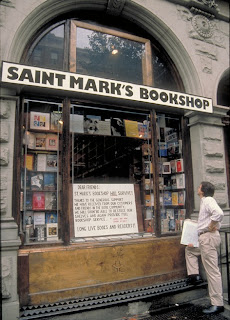Starting this week, I'm trying my hand at a weekly column over at Metro NY on any and all things New York City. For my first essay, it's lunchtime at El Quijote.
Read the piece at Metro here

Lunchtime at El Quijote is a quiet affair. Classical music plays overhead, a series of waltzes, giving you space to hear yourself think. Patrons are gray-haired, hushed, some of them in singles, sitting with white napkins on their laps, not reading, just sitting. No one, not even once, takes out a cell phone. They sit without anxiety, self-contained.
The waiter, dressed in his admiral's jacket, glides silently among the tables, bearing platters of meat and fish, cocktails, and salads. Bread arrives in a wire basket adorned with a paper doily.
At the far end of the dining room, mounted on a wall painted with sky, a group of windmills slowly turn. The dreary ceiling, scalloped in stucco, brazenly shows its age, untroubled by the dark spots and cracks. Dim chandeliers hang by threads. The oxblood booths wear their frayed shoulders with a shrug of acceptance.
"Laugh and the world laughs with you," a man says to his lunch companions, "Cry and you cry alone. Understand? Laugh and the world laughs with you. Cry and you cry all by yourself," as if the word "alone" is too difficult to grasp.
No one is talking about real estate or technology. No one is screeching with performative delight.
"The Nazis were very, very strict," says a wild-haired woman as she explains her trip to the Degenerate Art show at the Neue Galerie.
"I had a library of 5,000 books," says another man at another table. "But I had to give them up when I moved. I didn't have the space."
The salad is simple and unpretentious--lettuce, tomato, slices of radish. The pork chops are simple, accompanied by a stark smattering of plain peas. Your mother might have served this to you, back in the dark ages of the 20th century. The simplicity and plainness of the food acts as the opposite of a stimulant. Like the quiet, it calms the nervous system. It is just: pork chop, peas, lettuce, bread. It isn't trying to impress anyone. It has been this way for a hundred years and sees no point in changing. Take me or leave me, it says. I am what I am.
"In some countries, people will eat leftovers for breakfast."
"They're all in Bushwick now, the artists. No more in Manhattan."
Lunchtime at El Quijote is a protective bubble. The urban cymbal crash is kept far away, outside. Time slows down here. You are among the New Yorkers, the old guard, the ones who are awake, not locked to a screen's hypnotizing gaze. They know who they are, like the pork chops on the plate, and have no interest in putting on a show.



















































